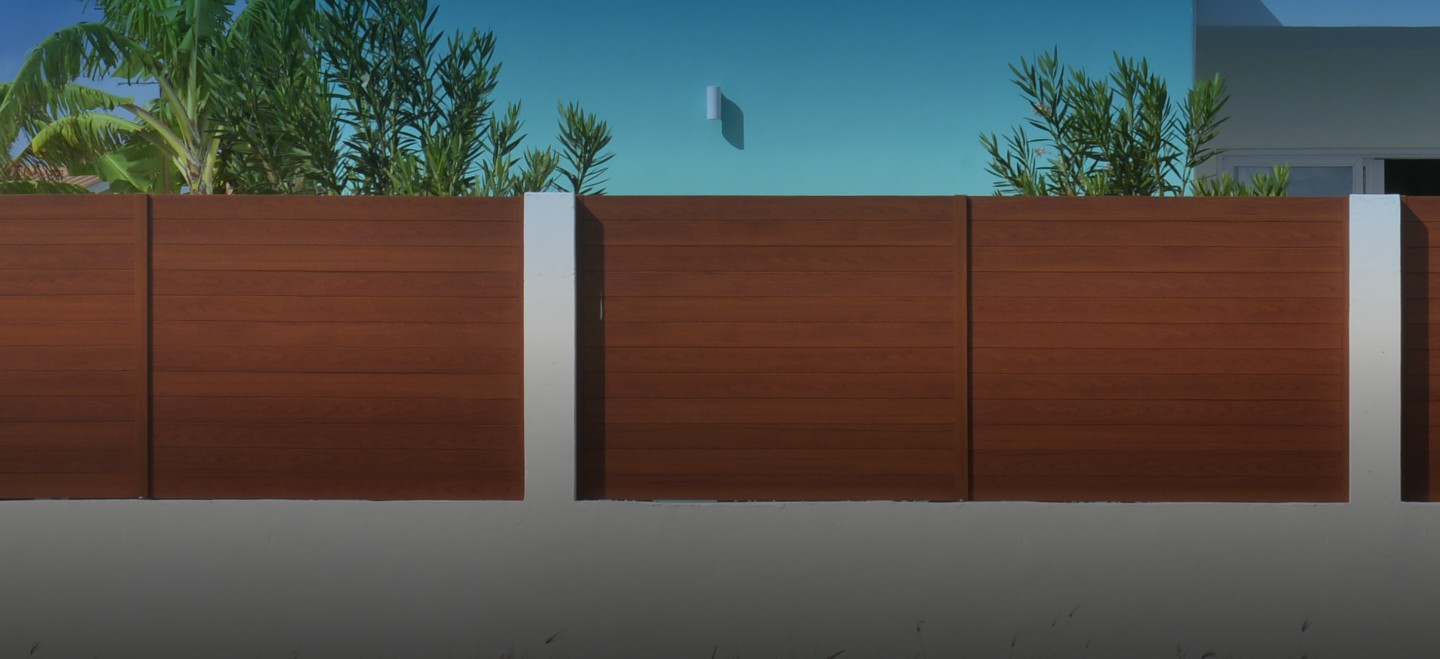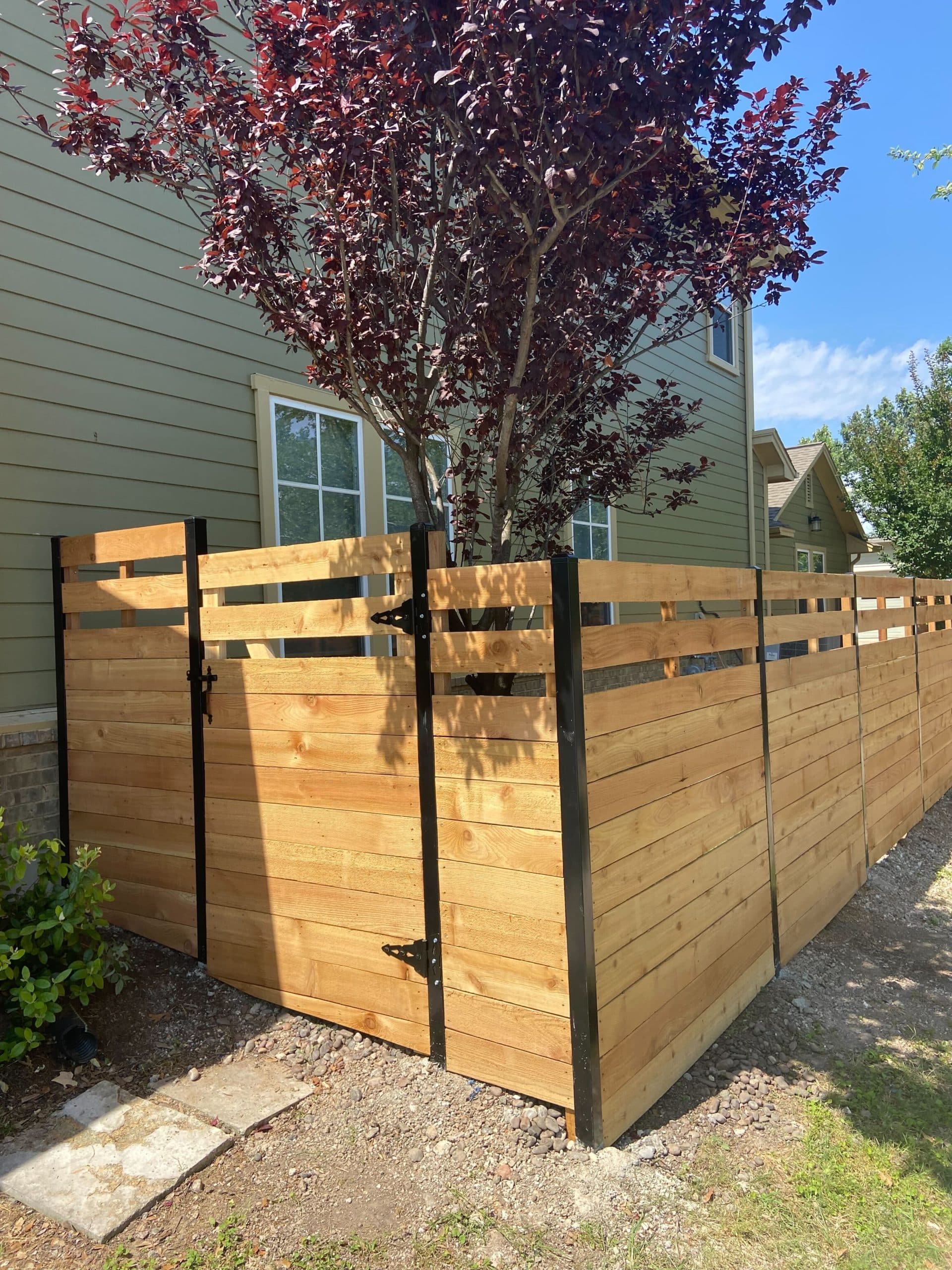All Categories
Featured
When you make a decision to set up a fence around your property, it's vital to understand the permit demands specific to your location. While setting up a fencing can feel like a simple home improvement job, neighborhood regulations and regulations need to be complied with to make sure the installment is lawful and compliant. Stopping working to safeguard the appropriate authorizations can lead to fines and even need you to remove the fencing. Here's a thorough take a look at the permits you may require for fence installation.
Why Do You Need an Authorization for Fence Installation? A fencing is greater than just an obstacle between buildings-- it can impact safety, building value, aesthetic appeals, and even ecological conditions. Neighborhood governments need authorizations to guarantee that fences satisfy particular criteria and do not cause troubles for utilities, neighbors, or the neighborhood as a whole. Licenses additionally ensure that the installment adheres to zoning legislations, constructing codes, and security laws.
![]()
Types of Authorizations You Might Require. Structure Permit. A structure authorization is one of the most typical permits required for fence installation. If you're building a fence over a specific elevation (normally over 6 feet), you'll likely require a building license.
Zoning License. A zoning authorization ensures your fencing complies with height, location, and problem policies. Fencings may require to be set back a certain range from sidewalks, roadways, or residential or commercial property lines to protect against blockage or interference with energies.
HOA Approval. If your residential or commercial property belongs to a property owners organization (HOA), you may need to seek authorization prior to installing a fence. HOAs typically have standards that regulate the looks and framework of fences to ensure they are in consistency with the neighborhood. You may require to submit your prepare for approval, and the HOA may limit fencing height, product, or design.
Specialized Permits. In some locations, there might be additional authorizations required for certain situations. If your fence is near a safeguarded environmental area or situated in a flooding zone, you may need to obtain specialty permits related to environmental influence. Similarly, if the fence remains in a location with underground utilities, you may require to get clearance to stay clear of damaging pipelines or wires.
![]()
Easement or Energy Business Authorization. Prior to setting up a fencing, it's important to inspect whether the property includes an easement, such as an energy easement, which could impact where you can position your fence. Easements are locations of land assigned for public or private utilities, and you may require approval from the utility business or other authority to develop within this location.
Exactly How to Figure Out What Allows You Need. To make certain that you're following all the required policies, right here's how you can identify the certain permits needed for your fence installation:
![]()
Check Out Your City Government Office: The primary step is to talk to your regional building or zoning department. Numerous cities and counties have standards readily available online that specify what kinds of authorizations are required for fencing setup. If not, seeing the office or calling personally can assist clear up the procedure. Check Your City's Site: Many districts offer information about fence installments and the permits required via their main web sites. Some websites also enable you to submit applications on-line. Seek Advice From a Fence Installation Specialist: If you're unsure concerning local regulations, a professional fencing contractor can aid. They are acquainted with the allowing procedure and can direct you through the steps. The Repercussions of Not Getting an Authorization. Stopping working to safeguard the essential licenses prior to setting up a fence can result in significant consequences. For example, you might be fined or needed to eliminate the fencing totally. Furthermore, if you choose to offer your residential or commercial property in the future, the lack of a license might discourage prospective buyers, as they might see it as a sign that the property is not compliant with neighborhood laws. Making sure that you have the proper licenses will save you time, cash, and frustrations over time.
Final thought. Installing a fence around your house can include both safety and aesthetic allure, yet it's important to ensure you're following the legal steps in the procedure. Looking into the details license needs for your location, consisting of building permits, zoning guidelines, HOA approval, and energy permissions, will certainly aid guarantee your fencing setup goes efficiently. Taking the time to recognize these demands currently can save you from costly blunders and prospective legal concerns down the line.
Why Do You Need an Authorization for Fence Installation? A fencing is greater than just an obstacle between buildings-- it can impact safety, building value, aesthetic appeals, and even ecological conditions. Neighborhood governments need authorizations to guarantee that fences satisfy particular criteria and do not cause troubles for utilities, neighbors, or the neighborhood as a whole. Licenses additionally ensure that the installment adheres to zoning legislations, constructing codes, and security laws.

Types of Authorizations You Might Require. Structure Permit. A structure authorization is one of the most typical permits required for fence installation. If you're building a fence over a specific elevation (normally over 6 feet), you'll likely require a building license.
Zoning License. A zoning authorization ensures your fencing complies with height, location, and problem policies. Fencings may require to be set back a certain range from sidewalks, roadways, or residential or commercial property lines to protect against blockage or interference with energies.
HOA Approval. If your residential or commercial property belongs to a property owners organization (HOA), you may need to seek authorization prior to installing a fence. HOAs typically have standards that regulate the looks and framework of fences to ensure they are in consistency with the neighborhood. You may require to submit your prepare for approval, and the HOA may limit fencing height, product, or design.
Specialized Permits. In some locations, there might be additional authorizations required for certain situations. If your fence is near a safeguarded environmental area or situated in a flooding zone, you may need to obtain specialty permits related to environmental influence. Similarly, if the fence remains in a location with underground utilities, you may require to get clearance to stay clear of damaging pipelines or wires.

Easement or Energy Business Authorization. Prior to setting up a fencing, it's important to inspect whether the property includes an easement, such as an energy easement, which could impact where you can position your fence. Easements are locations of land assigned for public or private utilities, and you may require approval from the utility business or other authority to develop within this location.
Exactly How to Figure Out What Allows You Need. To make certain that you're following all the required policies, right here's how you can identify the certain permits needed for your fence installation:

Check Out Your City Government Office: The primary step is to talk to your regional building or zoning department. Numerous cities and counties have standards readily available online that specify what kinds of authorizations are required for fencing setup. If not, seeing the office or calling personally can assist clear up the procedure. Check Your City's Site: Many districts offer information about fence installments and the permits required via their main web sites. Some websites also enable you to submit applications on-line. Seek Advice From a Fence Installation Specialist: If you're unsure concerning local regulations, a professional fencing contractor can aid. They are acquainted with the allowing procedure and can direct you through the steps. The Repercussions of Not Getting an Authorization. Stopping working to safeguard the essential licenses prior to setting up a fence can result in significant consequences. For example, you might be fined or needed to eliminate the fencing totally. Furthermore, if you choose to offer your residential or commercial property in the future, the lack of a license might discourage prospective buyers, as they might see it as a sign that the property is not compliant with neighborhood laws. Making sure that you have the proper licenses will save you time, cash, and frustrations over time.
Final thought. Installing a fence around your house can include both safety and aesthetic allure, yet it's important to ensure you're following the legal steps in the procedure. Looking into the details license needs for your location, consisting of building permits, zoning guidelines, HOA approval, and energy permissions, will certainly aid guarantee your fencing setup goes efficiently. Taking the time to recognize these demands currently can save you from costly blunders and prospective legal concerns down the line.
Latest Posts
What Allows Are Required for Setting Up a Fencing in My Area?
Published Dec 19, 24
0 min read
Why WyHy Credit Union is the Right Choice for You
Published Dec 19, 24
1 min read
Signs Your Fence Is in Need of Repair and How to Fix It
Published Dec 19, 24
2 min read